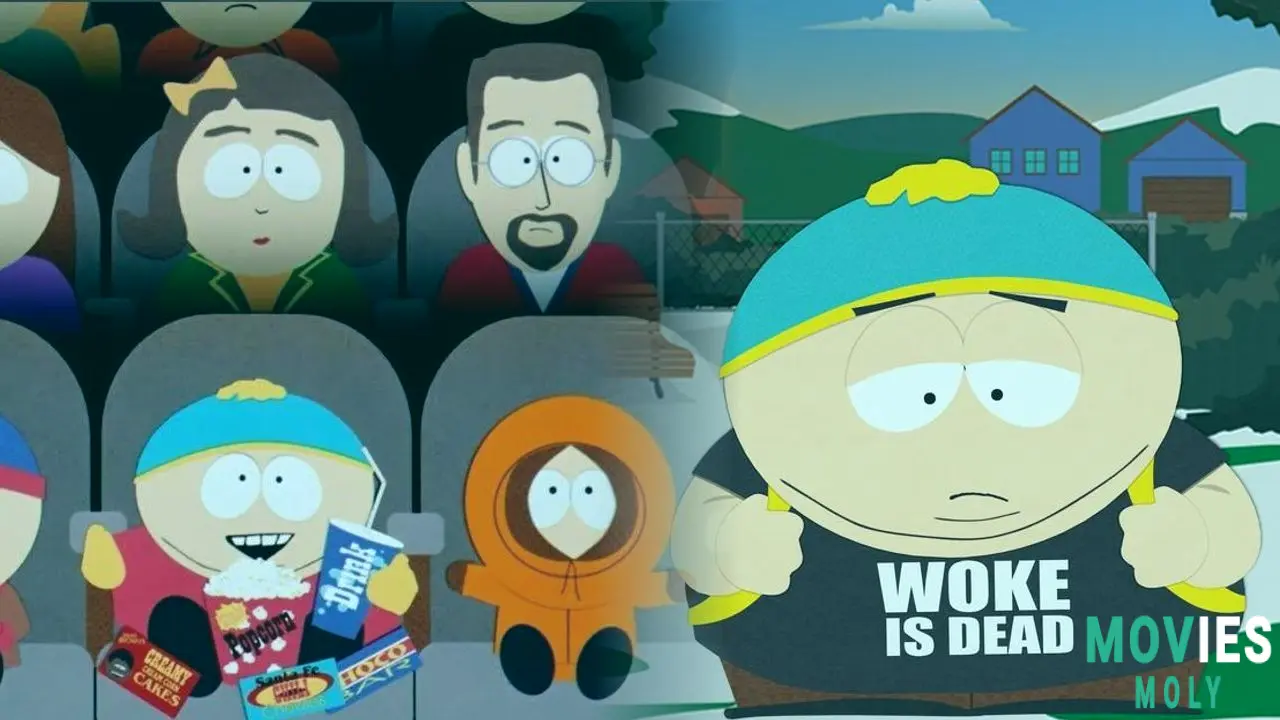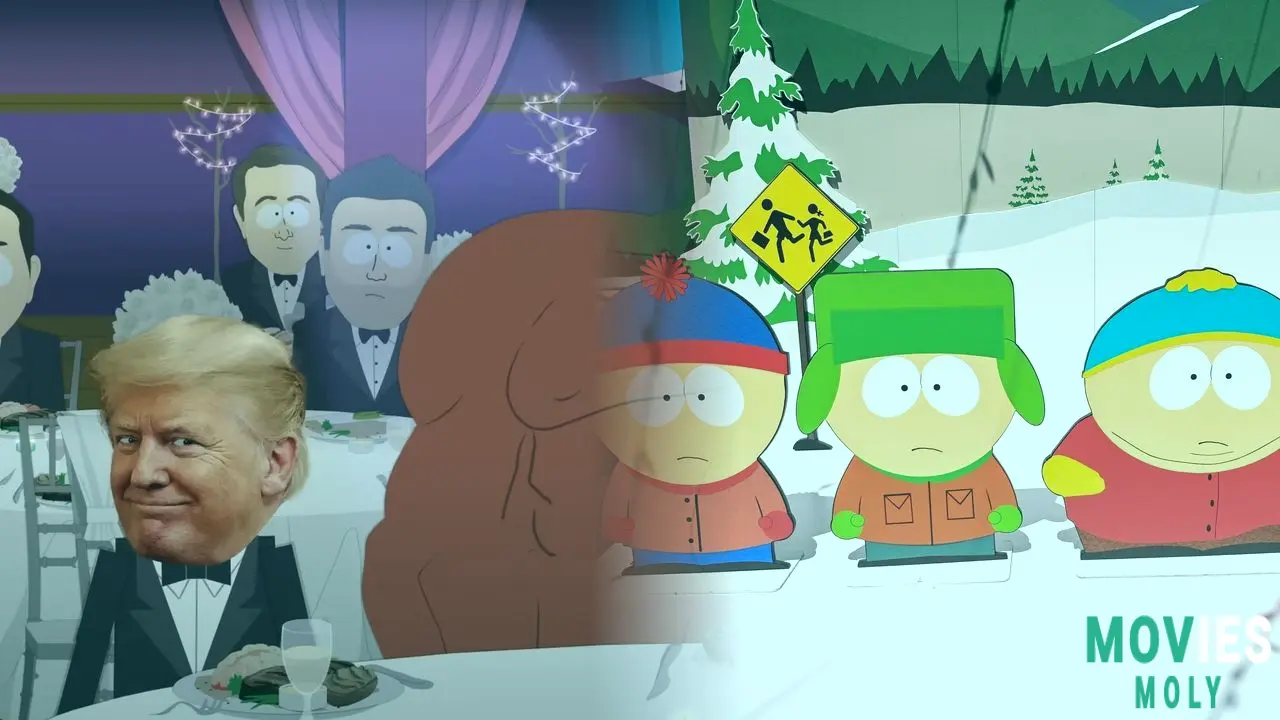After nearly three decades of pushing the envelope, South Park delivered one of its most talked-about premieres with the Donald Trump episode in Season 27. Trey Parker and Matt Stone, the show's creators, once stated they had little else to say about the former president. However, the episode, titled "Sermon on the 'Mount," proved them incorrect, not only by explicitly addressing Trump, but also by weaving his presence into a harsh condemnation of corporate media and the network that airs the show. This unexpected shift provoked considerable debate, record viewership, and even a response from the White House.
The Controversial Premiere: 'Sermon on the Mountain' ExplainedThe season 27 premiere of South Park, "Sermon on the 'Mount," threw viewers into a surreal situation in which Donald Trump sues the municipality of South Park for $5 billion. This court dispute begins when the town's parents object to his administration introducing religion into the schools. The narrative develops when Jesus Christ appears, stating that he is also involved in a lawsuit with Trump. Jesus advises the locals to settle, asking if they "really wanna end up like Colbert?" This line obviously mentions the cancelation of The Late Show With Stephen Colbert by Paramount, Comedy Central's parent company, which occurred just days after Paramount settled a $16 million lawsuit against Trump.
Why does South Park dare to bite the hand that feeds it?
South Park's choice to mock Paramount, the network's parent company, is a bold step. The show does not hesitate to portray its own network's activities as a result of political pressure. This strategy is a clear swipe at the media environment, implying that even huge firms are susceptible to political pressure. It demonstrates Parker and Stone's artistic freedom, despite a large financial arrangement with Paramount.
South Park's latest Trump episode is more than just parody; it's a masterclass in biting the hand that feeds them, combining political criticism and corporate critique.
Donald Trump's portrayal of AI, Satan, and Micro-Genitals

The episode's portrayal of South Park Trump is unlike any prior one. Parker and Stone placed Trump's real face over a little animated body, a visual choice that quickly went viral. The satire is frank, with an AI Trump addressing the camera with "micro-genitals" as depicted in the program. The episode also has a reoccurring gag in which Trump snuggles up in bed with South Park Satan, who is presented as a reluctant lover. These features combine crass humor with strong political critique, pushing the envelope of cartoon satire.
The usage of AI in the episode is also noteworthy, demonstrating how animation can leverage modern techniques for political satire. The deepfake-like visuals for the Trump figure, particularly the fake public service announcement at the episode's conclusion, reflect the changing nature of media manipulation and public perception.
From AI-generated images to deepfake PSAs, South Park's Trump episode stretched the boundaries, demonstrating that animation may be the most effective vehicle for political satire.
The White House Reacts: 'Irrelevant' or 'Irreverent'?

The Trump administration took note of the episode's forthright and confrontational satirical tone. The White House issued a statement criticizing South Park as a "fourth-rate" show that "hasn't been relevant for over 20 years and is hanging on by a thread with uninspired ideas in a desperate attempt for attention". However, this official response stands in stark contrast to the episode's performance.
The South Park ratings for "Sermon on the 'Mount'" reveal a different story. The premiere had the highest season-opener ratings since 1999, with nearly 6 million viewers within three days of its release. On the day it premiered, it was the most watched show on all cable channels. This success implies that, despite government condemnations, the show's caustic satire remains popular with a big audience.
The White House dismissed South Park as 'irrelevant,' but the show's record-breaking ratings for the Trump episode reveal a different picture. The viewer's perspective determines relevance!
Beyond the Screen: Fans and Media React to the Trump Episode

Beyond official pronouncements, the Donald Trump episode of South Park provoked substantial discussion in online groups. Forums, Reddit threads, and various social media platforms were flooded with opinions, ranging from admiration for the show's audacity to condemnation of its profanity. Many viewers praised the episode's ability to lampoon both political figures and corporate media in one go. The episode's capacity to elicit reactions from audiences across party lines, with some applauding the representation and others "ticked off" by it, demonstrates its broad cultural impact.
The episode's broader impact on political discourse is demonstrated by how soon its specific jokes became part of online conversations. The "teeny tiny" genitals phrase and the South Park Satan dynamic became immediate memes, demonstrating how the program continues to affect public discourse through humor. This ability to spark instant, widespread discussion is a defining feature of South Park's continuing influence.
South Park's ability to shift from attacking Trump's policies to lampooning corporate media in one episode is why it is still a cultural classic.
The $1.5 Billion Deal: South Park's New Home on Paramount Plus

The controversial premiere coincided with a significant shift in South Park's distribution. Trey Parker and Matt Stone struck a $1.5 billion South Park Paramount deal, which includes 50 new episodes over five years and the transfer of the complete collection from HBO Max to Paramount+. This agreement followed heated talks, with the creators threatening to sue a former NBCUniversal executive for allegedly tampering with other potential buyers.
The scale of the transaction demonstrates Paramount's strong belief in South Park's own style of humor. It also grounds the show firmly in the corporate system that it so effortlessly mocks. The cancellation of The Late Show. Stephen Colbert and Paramount's settlement with Trump, which came before the contract, add layers to the episode's meta-commentary, implying that the network's financial actions are politically motivated.
The $1.5 billion contract with Paramount demonstrates the great importance of South Park's distinct style of current, no-holds-barred satire, even when it criticizes its own parent corporation.
The Art of Timely Satire: South Park's Production Magic.
South Park has always been noted for its fast-paced production schedule, which allows it to respond to current events quickly. This capacity to produce episodes quickly is critical to the show's current satire, particularly when dealing with fast-moving political occurrences such as the South Park White House Reaction or corporate mergers. While exact behind-the-scenes specifics for this episode are unknown, the show's history indicates a very efficient and adaptable creative process that enables Parker and Stone to include real-world events almost as they occur.
A historical context for South Park's political satire legacy.
South Park has a long tradition of political humor, frequently confronting difficult themes since its 1997 premiere. The show has continually pushed the boundaries, criticizing celebrities and religious groups as well as foreign governments. Earlier seasons had characters such as Mr. Garrison taking on a Trump-like persona, demonstrating the show's early fascination with the surreality of modern politics. The South Park Trump episode contributes to this progression by showcasing the authors' willingness to return topics they previously claimed to have exhausted, discovering fresh angles and deeper corporate links to investigate.
Comparing South Park's Trump and Other Satirical Takes
When compared to other popular satire series, South Park's attitude to Trump distinguishes out. While Saturday Night Live and The Daily Show have contributed their own perspectives, South Park frequently goes above and above in its candor and willingness to offend. Explicit visual humor and outright criticism of its own parent company are rare in popular political comedy. The Late Show with Stephen Colbert, for example, was canceled, demonstrating the differences in pressures and bounds between live-action late-night shows and animated comedy. The show's usage of South Park AI Trump and its interaction with South Park Satan distinguishes it, exhibiting a distinct blend of hilarity and incisive critique.
Teasers for Episode 2 include ICE, DHS, and Mr. Mackey's new role.The mockery continues with the second episode of South Park Season 27, "Got A Nut." Teasers for this episode suggested a connection between the South Park ICE episode and the Department of Homeland Security (DHS). Mr. Mackey is portrayed disguised as an ICE officer who has lost his job and is looking for a new method to make a living. On X, the DHS even ridiculed South Park by recruiting staff using a still from the teaser, to which South Park famously responded with a harsh remark, questioning their own "relevance". This continual discussion strengthens the show's position in the present political discourse.
The South Park Donald Trump episode and the subsequent "Got A Nut" installment demonstrate the show's enduring relevance and capacity to provoke. Parker and Stone have once again demonstrated their unique position in the realm of satire by combining sharp political analysis and corporate condemnation. The show's future on Paramount+, as well as its continued engagement with current concerns, indicate that South Park will be an important voice in the cultural discourse for many years to come.






